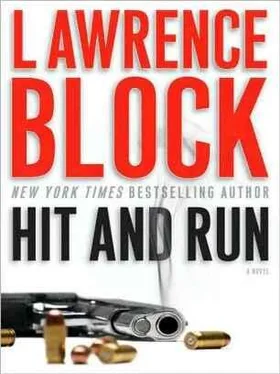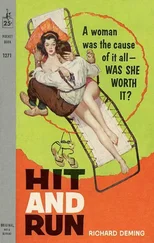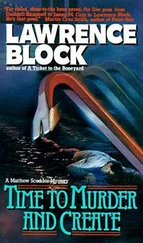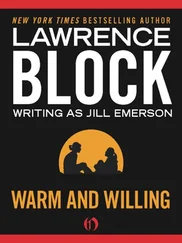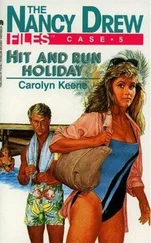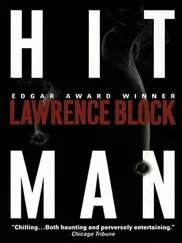As far as Keller knew, no one outside of the tabloid press had ever called the old man Joe the Dragon. There were people who referred to him, though never to his face, as Joey Rags, or the Ragman, because of the coincidence of his surname combined with his one-time involvement with a Garment District trucking local. Keller himself never thought of him or referred to him as anything other than the old man.
And the old man had never retired. He’d let go of a lot of his interests toward the end, but he was still brokering jobs and sending Keller out to take care of them right up to the very end.
“As Joe the Dragon’s live-in companion and presumed confidante,” the unnamed source went on, “Harbison would have been privy to a lot of O.C. information. Maybe someone was afraid she’d tell what she knew. Ragone’s been gone a long time, but what is it they say? Sooner or later the chickens come home to roost.”
It was as pointless as anything he might have done, but he couldn’t help himself. He dropped coins in a pay phone and dialed Dot’s number.
Coo-wheeeet!
Not a working number. Well, that was the truth, wasn’t it? Burn a house to the ground and you had to expect an interruption in telephone service.
He got his quarters back and used them to call his own phone number, half expecting the same coo-wheeeet and the same recording. Instead he got a ring. His machine was set to pick up after two rings if he had messages and after four if he didn’t, so that he could retrieve them from a distance while avoiding the toll if there were none to retrieve. He was surprised when it rang a third time, he’d expected messages after this long an absence, and he was even more surprised when the phone went on to ring a fourth and a fifth and a sixth time, and might have gone on ringing forever if he hadn’t ended the connection.
Why would it do that? He didn’t have call-waiting, so it couldn’t be that the machine was already handling a call. If that happened he’d just get a busy signal.
He wondered why he was even bothering to dig his quarters out of the coin return chute. Who would he ever have occasion to call?
It was over, he saw now. That’s what he’d been on the verge of realizing, that was the nasty little thought he’d kept at bay. And the pipe dream that had sustained him all the way back from Iowa, the mad fantasy that everything would be peaches and cream the minute he got back to his own apartment, was now so clearly impossible he wondered how he’d ever been dim enough to entertain it, let alone take it as gospel.
He’d somehow managed to regard New York as a haven, safe and sacrosanct. For years he’d made it a rule never to accept assignments in the city, and while he’d had to break the rule on a couple of occasions, most of the time he’d adhered to it. The rest of the country, and he’d covered a great deal of it at one time or another, was where he went to do his work. New York, his home, was where he came when the work was done.
But, however much people both in and out of the city might prefer to think otherwise, New York was part of America. New Yorkers watched the same newscasts and read the same newspaper stories. They might be better than most people at minding their own business, and it was not uncommon for an apartment dweller to be unable to identify people in his own building by name, but that hardly meant they turned a deaf ear and a blind eye to everything around them.
His picture had been all over TV and in every newspaper with the possible exception of Linn’s Stamp News . (And it might even turn up there, if James McCue had managed to figure out just who it was who’d bought those Swedish reprints from him.) How many people lived within a block or two of Keller? How many knew him from the building, or had run into him at the deli, or at the gym, or anywhere in that unassuming life he’d been idealizing just minutes ago?
That life to which he could never return.
He went through the paper again, more carefully this time, and in a story he’d skimmed earlier he found evidence that at least one of Keller’s neighbors had noticed his resemblance to the furtive chap in the photograph. Commenting on the multiple sightings of the fugitive, the journalist alluded to an unnamed Turtle Bay resident who’d become a person of interest to the police “only because of some apparent uncertainty as to the nature of his occupation, and his frequent trips out of town.”
That would be enough to warrant a visit. Would they turn up anything incriminating in his apartment?
He couldn’t think of anything. They’d find his laptop computer, and they’d turn his hard drive inside and out, but back when he bought the thing he’d known that email had a half-life longer than uranium’s, and that a couple of sentences wafting through the ether would leave a trail that could outlive the sender. He and Dot had never sent each other an email, and vowed they never would.
Well, that would be an easy promise to keep, wouldn’t it?
He’d used his computer mostly in connection with his hobby — corresponding with dealers, surfing for information, buying stamps on eBay, bidding in auctions. He’d checked airline websites before his flight to Des Moines, but he hadn’t bought his ticket online because he was going to be flying as Holden Blankenship. So he’d made the reservation over the phone, and there wouldn’t be any record of it on his computer.
Could they tell what sites he’d visited, and when? He wasn’t sure, but figured the guiding principle — that when it came to technology, anybody could do anything — probably applied. One thing he was pretty sure they could do was pull up his phone records and establish that he’d called an airline a day or two before Blankenship flew to Des Moines, but at this point it didn’t matter, at this point none of it mattered, because he’d finally managed to attract their attention, and that was all it took. He’d come as far as he had in life by staying out of the spotlight, and now he was in it, and that was the end of it.
The end of John Paul Keller. If he stayed alive, which seemed very iffy indeed, it would have to be somewhere else, and under some other name. He wouldn’t miss the first two names; hardly anyone had ever used them, and he’d been called Keller by just about everybody since boyhood. That was who he was, and when he filled something out with his initials he sometimes thought they stood for Just Plain Keller.
He couldn’t be Keller anymore. Keller was over and done with — and, when he thought about it, he realized that everything in Keller’s life was already gone, so what difference could it make if the name vanished along with it?
The money, for one thing. He’d had, at last report, something in excess of two and a half million dollars in stocks and bonds, all of it in an Ameritrade online account set up and managed by Dot. The money would still be there, it wouldn’t vanish with her death, but it might as well be gone for all the good it would do him. He had no idea what name she’d used on the account or how a person might go about accessing it.
Of course he had bank accounts, savings and checking. Maybe as much as fifteen thousand in his savings account, plus a thousand or so in checking. By now they’d have frozen his accounts, and they’d be just waiting for him to get his picture taken trying to use his ATM card. He couldn’t use it now, anyway, because he hadn’t brought it with him, so they’d probably confiscated it by now.
No money, then. And no apartment, either. He’d lived for years in an apartment on First Avenue that he’d bought at the very reasonable insider’s price back when the Art Deco building went co-op, and the monthly maintenance charges didn’t come to much, and he’d known he’d spend the rest of his days there until they carried him out feet first. It had always been his refuge, and now he didn’t even dare go back there. It was out of his reach forever, along with his big-screen TV with TiVo and his comfortable chair and his bathroom with the pulsing showerhead and the desk he worked at and—
Читать дальше
